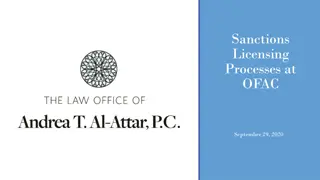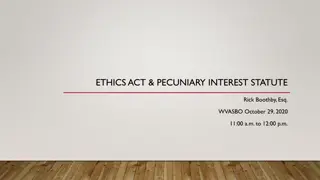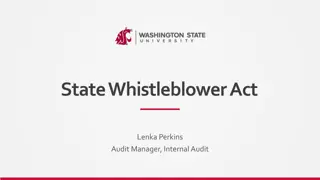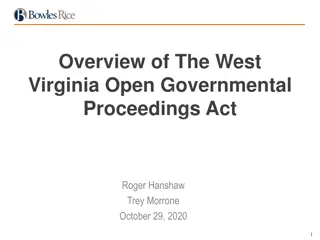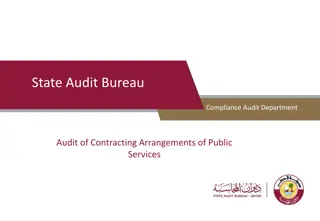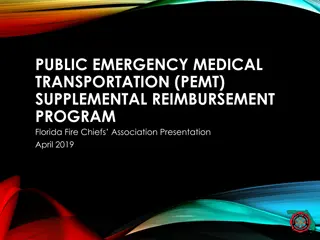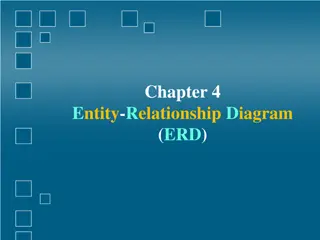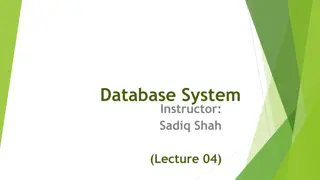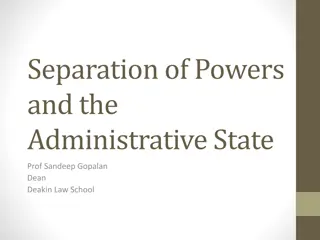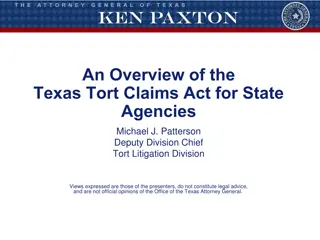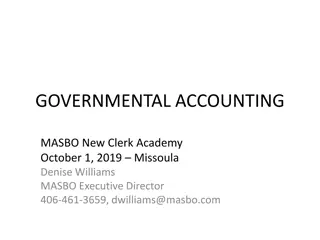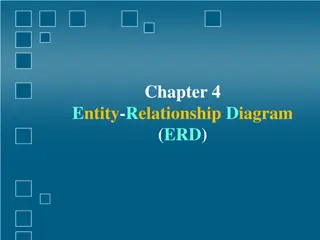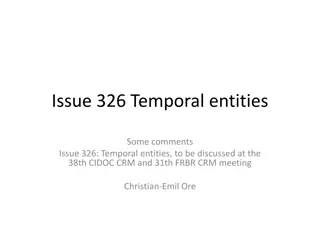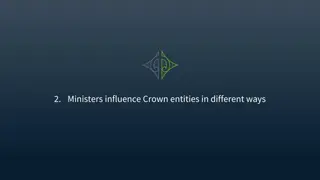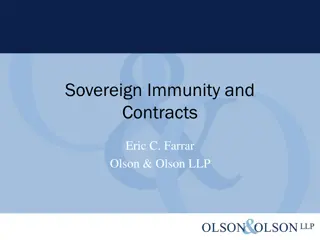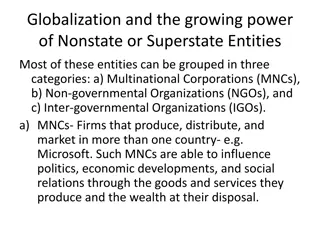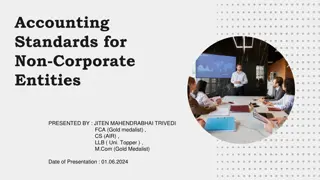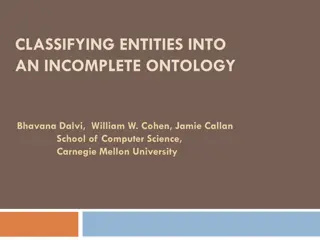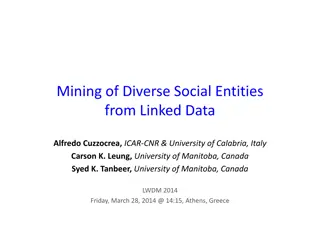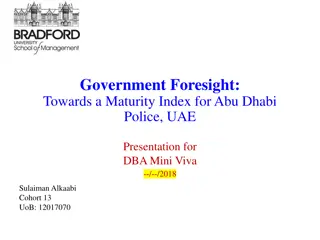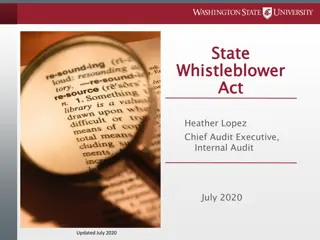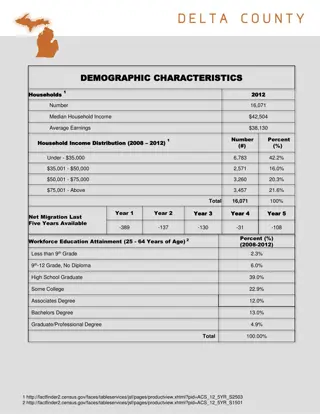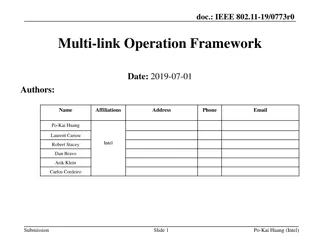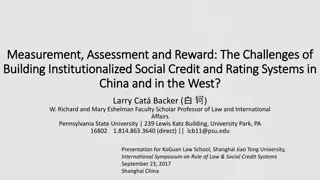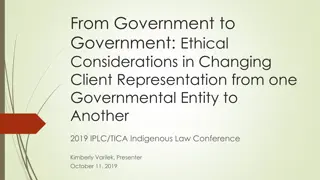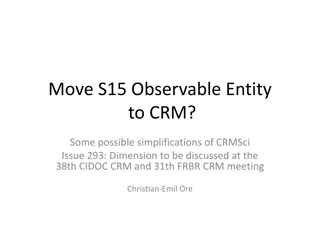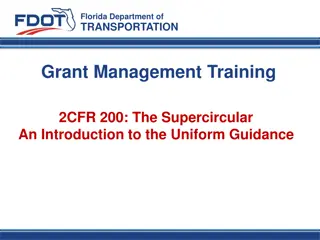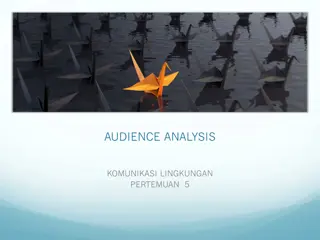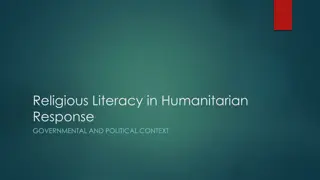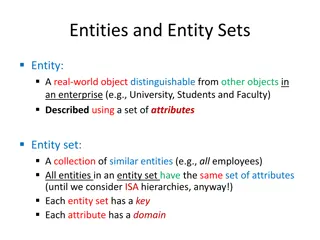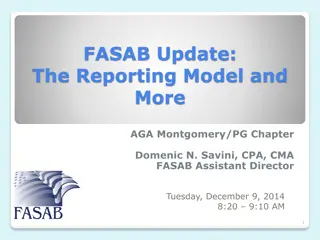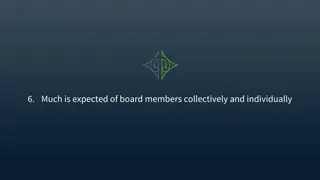Latin America Society of American Nuclear Society - Overview and Governance
The Latin American Section of the American Nuclear Society (LAS/ANS) was established in 1975 to represent nuclear professionals across Latin America. It focuses on promoting nuclear science and technology in various fields, facilitating research and education, organizing technical meetings, and fost
2 views • 43 slides
Guide to Legalizing Your Documents for Use in China
Learn the detailed process of legalizing your documents for official use in China, including the consular legalization procedure, authentication of governmental and non-governmental documents, and certification of third-country passports. Follow these steps to ensure the authenticity and validity of
5 views • 9 slides
E-Business
E-Business, or electronic business, encompasses computer-mediated processes in organizations, including for-profit, governmental, or nonprofit entities. It involves a range of business activities conducted over networks, focusing on production, customer service, and internal management processes. E-
0 views • 25 slides
Sanctions Licensing Processes at OFAC Overview
The Office of Foreign Assets Control (OFAC) administers U.S. economic sanctions against targeted foreign entities. This overview covers OFAC's jurisdiction, licensing authorities, application processes, and tips for interacting with OFAC. Compliance with U.S. primary sanctions is crucial, especially
0 views • 32 slides
West Virginia Governmental Ethics Act & Pecuniary Interest Statute Overview
West Virginia Governmental Ethics Act applies to public servants and employees, setting rules to prevent private gain from public positions. Pecuniary Interest Statute addresses conflicts related to contracts and compensation. The Ethics Commission enforces these laws through advisory opinions and i
0 views • 45 slides
Overview of State Whistleblower Act in Washington State
The State Whistleblower Act in Washington State, governed by the Revised Code of Washington (RCW) 42.40, provides a mechanism for state employees to report improper governmental actions. The Act aims to encourage whistleblowers to come forward, prohibits retaliation, and authorizes remedies for viol
0 views • 28 slides
Understanding the West Virginia Open Governmental Proceedings Act
The West Virginia Open Governmental Proceedings Act promotes transparency in government by allowing public input to shape actions and policies. It emphasizes the importance of openness, public access, and informed control over government operations. The act covers meeting notices, conduct, minutes,
0 views • 37 slides
State Audit Bureau in Qatar: Ensuring Accountability and Transparency
The State Audit Bureau in Qatar, established in 1973, plays a crucial role in safeguarding public funds, ensuring compliance with laws, and enhancing transparency. Through its audit of contracting arrangements in the public sector, the Bureau aims to improve resource utilization for sustainable deve
0 views • 18 slides
Florida Public Emergency Medical Transportation Program Overview
The Florida Public Emergency Medical Transportation (PEMT) program aims to supplement reimbursement for emergency medical services provided to Medicaid recipients. The program, established by the Florida Fire Chiefs Association, helps offset the costs of ambulance transport by leveraging federal fun
1 views • 17 slides
Understanding Entity-Relationship Diagrams (ERD) for Database Design
Entity-Relationship Diagrams (ERD) are vital in database design, illustrating entities and their relationships. They help in conceptualizing data models and laying the groundwork for database structures. The process involves identifying entities, defining relationships, and analyzing interactions to
0 views • 40 slides
Understanding Modeling Entities and Attributes in Database Systems
Entities, relationships, and attributes are fundamental constructs in the Entity-Relationship (E-R) model. Entities represent people, places, objects, events, or concepts in a user environment. Each entity type has a set of attributes defining its properties. It is crucial to distinguish between ent
2 views • 17 slides
Principles of Separation of Powers in the Administrative State
Understanding the principles of separation of powers - including the separation of functions, division of power, checks and balances, bicameralism, and federalism - is crucial in maintaining a system where governmental entities coexist harmoniously while preventing the concentration of political pow
0 views • 20 slides
Understanding the Texas Tort Claims Act for State Agencies
The Texas Tort Claims Act (TTCA) outlines the scope of tort liability for State entities and employees during their state employment. State entities are represented by the Office of the Attorney General, and specific provisions apply to state entities separate from municipalities. This overview cove
0 views • 16 slides
Fund Accounting Overview and Types of Funds in Governmental Accounting
Fund accounting in governmental organizations involves segregating financial resources into self-balancing accounts to facilitate specific activities and objectives. This practice ensures compliance with regulations and restrictions, such as GAAP and state laws. Various types of funds, including gov
0 views • 41 slides
Understanding Entity-Relationship Diagrams (ERD)
An Entity-Relationship Diagram (ERD) is a vital data modeling technique for visualizing an information system's entities and their relationships. This graphical representation helps in database design by defining entities, analyzing interactions, and determining cardinality. Entities represent real-
1 views • 40 slides
Understanding Nutrition Cluster Structures and Roles
Learn about the structures and roles within Nutrition Clusters at different levels, including the responsibilities of key actors such as the Cluster Coordinator, Information Manager, Strategic Advisory Group, and Technical Working Groups. Explore the involvement of governmental and non-governmental
0 views • 27 slides
Discussion on Temporal Entities and Simultaneity in CIDOC CRM Meeting
Temporal entities and the modeling of simultaneity in CIDOC CRM are under discussion at the upcoming meeting. The current approach considers the cardinality of certain relations, aiming to streamline the representation of time-spans and spacetime volumes. The evolving perspectives on the spatial com
3 views • 5 slides
Understanding the British Governmental System and Monarchy
Explore the British governmental system and monarchy with insights into the House of Parliament, House of Lords, House of Commons, Buckingham Palace, and the Royal Flag. Discover the roles and functions of key institutions in the UK's political framework.
0 views • 13 slides
Overview of APESS-Nigeria's PAMOBARMA Project Activities in North West Nigeria
APESS-Nigeria, in collaboration with various governmental and non-governmental organizations, has been implementing the PAMOBARMA project in Katsina, Kebbi, and Sokoto states of Nigeria since 2018. The project focuses on promoting livestock farming and enhancing market opportunities for pastoralists
0 views • 25 slides
Ministers' Influence on Crown Entities through Strategic Processes
Ministers influence Crown entities by appointing effective boards, engaging in dialogue, participating in strategic planning, and ensuring continuous improvement. They make appointments, hold meetings, receive regular performance reports, and guide entities in setting strategic directions. Through f
0 views • 11 slides
Understanding Sovereign Immunity and Contracts in Legal Context
Explore the intricacies of sovereign immunity and contracts in legal settings, including waivers, elements of immunity waiver, contractual implications, and the distinction between proprietary and governmental functions of local governmental entities. Delve into the key aspects that govern these leg
0 views • 14 slides
Globalization and the Influence of Nonstate Entities
Globalization is shaped by the power of Multinational Corporations (MNCs), Non-governmental Organizations (NGOs), Inter-governmental Organizations (IGOs), and technological advancements. These entities wield influence on politics, economics, and social dynamics globally. The authority and legitimacy
0 views • 4 slides
Accounting Standards for Non-Corporate Entities Overview
Introduction to accounting standards for non-corporate entities such as partnerships, LLPs, trusts, and nonprofits. Explanation of the applicability of accounting standards based on business size and the classification of Level I, II, III, and IV entities by ICAI. Details of the ICAI announcement da
0 views • 14 slides
Classifying Entities into an Incomplete Ontology: Exploratory EM Approach
The research discusses methods for hierarchical classification of entities into incomplete ontologies. It explores the challenges of evolving web-scale datasets and the need for classifying entities in an incomplete ontology structure. The Hierarchical Exploratory EM model is detailed, providing ins
0 views • 27 slides
Diverse Social Entities Mining from Linked Data in Social Networks
This research focuses on mining diverse social entities from linked data in social networks using a DF-tree structure and DF-growth mining algorithm. The study explores the extraction of important linked data in social networks and the mining of various social entities such as friends. Prominence va
0 views • 13 slides
Developing a Maturity Index for Foresight in Abu Dhabi Police: A Groundbreaking Study
Exploring the implementation of foresight techniques in governmental organizations, particularly in the Abu Dhabi Police, this study aims to develop a maturity index to assess and enhance decision-making processes. By collecting data from top organizational leaders, the research seeks to identify st
0 views • 9 slides
Understanding the State Whistleblower Act: Reporting Improper Governmental Actions
The State Whistleblower Act, enacted in 1982 and amended in 1999 and 2008, provides a platform for state employees to report improper governmental actions. It aims to encourage reporting and prohibits retaliation against whistleblowers. Improper actions include gross waste of resources, violations o
0 views • 25 slides
Demographic and Governmental Overview of Escanaba City and Delta County
This information provides a detailed overview of the demographic characteristics and governmental structure of Escanaba City and Delta County in Michigan. It covers data on household income distribution, workforce education attainment, city government officials, county government administration, sta
1 views • 14 slides
IEEE 802.11-19/0773r0 Multi-link Operation Framework Summary
The document discusses the multi-link operation framework for IEEE 802.11-19/0773r0, focusing on load balancing and aggregation use cases. It introduces terminology related to multi-link logical entities and provides examples of multi-link AP and non-AP logical entities. The framework considers stee
0 views • 16 slides
Challenges of Building Social Credit Systems in China and the West
The presentation by Larry Cat Backer explores the challenges of constructing institutionalized social credit and rating systems in China and the West. It delves into the intricacies of measuring, assessing, and rewarding individuals and entities based on criteria like governmental sincerity, commerc
0 views • 19 slides
Submission to Governmental Authorities in the Bible
The Bible emphasizes the importance of honoring and submitting to governmental authorities as they are appointed by God. Passages from 1 Peter and Romans instruct believers to obey rulers, governors, and kings, not using freedom as a pretext for wrongdoing. By following these teachings, individuals
0 views • 26 slides
Ethical Considerations in Changing Client Representation between Governmental Entities
This presentation focuses on ethical considerations when transitioning client representation from one governmental entity to another, emphasizing the importance of informed consent, confidentiality, and avoiding conflicts of interest. Rule 1.9(c) plays a key role in regulating the use of former clie
0 views • 8 slides
Comparison of Observable Entities in CRM and CRMSci
In this content, different aspects of observable entities in CRM and CRMSci are discussed, including measurements, assignments, simplifications, and adjustments. The evolution and implications of observable entities within these frameworks are explored through various dimensions and properties, shed
0 views • 7 slides
Understanding Uniform Guidance in Grant Management
The Uniform Guidance under 2 CFR 200 streamlines federal grant management regulations into one consolidated set of guidelines effective since December 26, 2014. It replaces eight OMB circulars and applies to federal agencies making awards and non-federal entities receiving them, including various go
0 views • 21 slides
Effective Audience Analysis for Successful Communication
Understanding the target audience is crucial for effective communication. This involves analyzing who the audience is, why it is important to communicate with them, and how messages can be tailored to meet their specific needs. By identifying parameters, customization strategies, and desired reactio
0 views • 19 slides
Requirements for Managing Entities in Health Systems
Grant agreements and payments of federal and state financial assistance require compliance with specific statutory authorities. Managing entities must follow guidelines for reporting and reconciling funds, with a focus on transparency and accountability. Providers are required to complete specific s
0 views • 15 slides
Challenges of Religious Literacy in Humanitarian Response within Governmental and Political Context
Challenges arise in humanitarian response within governmental and political contexts due to secular approaches in religious societies. Issues include discriminatory practices against local faith-based organizations (FBOs), unhelpful gender dynamics, harmful social practices, and simplistic charity m
0 views • 6 slides
Understanding Entities and Relationships in Database Design
Explore the concepts of entities, entity sets, attributes, key attributes, single-valued and multi-valued attributes, derived attributes, as well as relationships and relationship sets in the context of database design. Gain insights into distinguishing between regular entities, weak entities, and e
0 views • 24 slides
FASAB Update: The Federal Reporting Entity Proposal
Discussions on the Federal Accounting Standards Advisory Board (FASAB) update regarding the reporting model, including proposals for the General Purpose Federal Financial Reports (GPFFR) and the distinction between consolidation entities and disclosure entities. The presentation covers principles of
0 views • 31 slides
Expectations and Responsibilities of Board Members in Statutory Entities
Board members of statutory entities are collectively expected to ensure consistent and effective entity performance, financial responsibility, and collaboration. Individually, they must act with integrity, comply with legislation, and avoid conflicts of interest. Boards have a crucial role in monito
0 views • 5 slides



